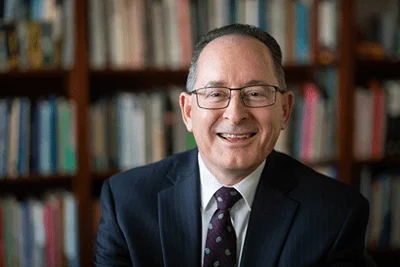Allamerica Financial Citizens issued the following announcement on Dec. 12
Harvey Weinstein, the disgraced film mogul charged with rape, reached a tentative $47 million settlement with accusers, potentially putting an end to many of the civil complaints against him, according to a person with knowledge of the situation.
The money would be paid by Weinstein Co.’s insurance firms, according to the person, who asked not to be identified because the agreement isn’t yet public. The settlement would still require the approval of the courts and the parties involved. About a third of the money is expected to go to lawyers. Weinstein Co. is in bankruptcy proceedings.
The New York Times previously reported the agreement, saying the pact wouldn’t require Weinstein to admit wrongdoing or pay anything personally. More than 30 actresses and former Weinstein workers would share in the settlement, the Times reported.
At a bail hearing earlier on Wednesday, a judge in his separate, criminal case ordered Weinstein to post a $2 million insurance bond, up from $1 million, after prosecutors said he repeatedly violated the conditions of his release by disabling a device that tracks his whereabouts. Weinstein is scheduled to go on trial Jan. 6 on charges including rape and predatory sexual assault.
The 67-year-old producer left part of his electronic ankle monitor at home in Bedford, New York, rendering it inactive on at least 57 occasions in less than two months, prosecutor Joan Illuzzi said at the hearing. The device has two parts, one Weinstein wears around his ankle and another that emits a signal, she’d said at a Dec. 6 hearing, when she first asked for the bail increase.
Weinstein, who appeared in court in Manhattan shuffling with a walker, is to undergo back surgery Thursday after an auto accident in August, his lawyer Arthur Aidala told New York State Supreme Court Justice James Burke. The surgery shouldn’t affect Weinstein’s readiness for trial, Aidala said.
“If you have any further medical issues, the court will not be terribly understanding,” the judge warned Weinstein. “The court will issue a warrant for your arrest.”
“I’ll be there before anybody,” Weinstein replied.
Weinstein has pleaded not guilty and maintains that any sexual activity was consensual. He and Weinstein Co. have also been sued by numerous women claiming the company helped facilitate and conceal “widespread sexual misconduct.”
Weinstein was ousted from the company he founded in October 2017 over such allegations. The company filed for bankruptcy protection in March 2018, citing more than 80 legal claims against Weinstein.
It remains to be seen whether judges in bankruptcy court and federal court in New York will sign off on the settlement agreement.
“We reject the notion that this was the best settlement that could have been achieved on behalf of the victims,” said Douglas Wigdor, a lawyer for several accusers. “While we don’t begrudge victims who want to settle, we plan to vigorously object to any provision that tries to bind victims who want to proceed with holding Harvey Weinstein accountable for his actions which is exactly what we intend to do.”
In the criminal case, Illuzzi had argued at an earlier bail hearing that Weinstein had “almost unlimited resources” after making tens of millions of dollars selling his New York properties. He frequently travels by private jet and could leave the country, she said. She said on Wednesday that the man who oversaw Weinstein’s electronic monitoring told her he “panicked” when he couldn’t locate Weinstein in October.
“These were not technical glitches in any way, shape or form,” Illuzzi said. “In the monitor’s opinion, Mr. Weinstein didn’t want people to know where he was.”
Aidala argued that Weinstein has been “100 percent compliant” with the conditions of his bail, saying his client looked forward to the trial “to clear his name for the whole world, most importantly for his immediate family.”
Donna Rotunno, who is also defending Weinstein, said her client hadn’t disabled the device, attributing the lapses to “technical glitches.” She said reception in his Westchester neighborhood was spotty because of a scarcity of cellphone towers in the affluent area.
Rotunno said Weinstein couldn’t be blamed for the glitches because he employed an assistant whose job it was to manage the device for him. Not only was the monitor painful to wear, she said, but Weinstein had to use private jets because it requires him to face additional security screenings when he flies commercially.
She also argued he couldn’t afford an increase in bail because proceeds from the property sales “didn’t go into his pocket” but were used to support his two ex-wives and his children.
Original source can be found here.


 Alerts Sign-up
Alerts Sign-up